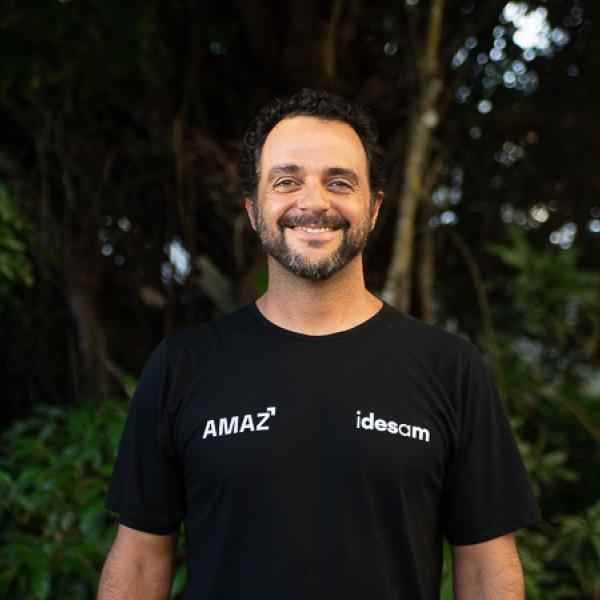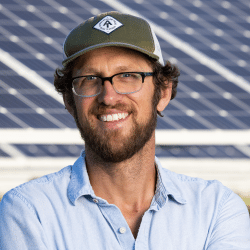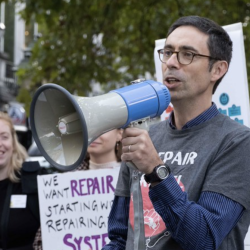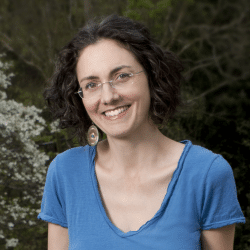Wprowadzenie
Working in the heart of the Amazon for 20 years, Mariano is dedicated to building, supporting, and investing in a new generation of entrepreneurs and impact businesses committed to the sustainable development of the region.
Nowy pomysł
After a long and successful career at the head of IDESAM, the NGO he founded in 2004, Mariano created AMAZ Aceleradora de Impacto (AMAZ Impact Accelerator), dedicated to forming and amplifying businesses that aim to solve the most relevant social and environmental problems in the Amazon. By identifying, accelerating and investing in new generations of impact entrepreneurs, Mariano is driving the sustainable bioeconomy in the region, which is built by and with the people of the Amazon, for the people of the Amazon, and in harmony with the forest.
Born in São Paulo, Mariano left home at the age of 17 to study forestry engineering in Piracicaba (ESALQ/USP), and from there, as a recent graduate, he moved to Manaus. Self- described as "from São Paulo by birth and from Amazonas by upbringing", he has always sought to innovate and break down barriers in order to build a better world. IDESAM grew rapidly, and soon found itself in a dilemma between expanding its projects, services and territories of direct action or trying to create a different model of action, based on networks of partners, entrepreneurs and attracting private investment. So, in 2017, he brought together a group of partners and helped create a private sector engagement network called the Partners for the Amazon Platform (PPA), from which emerged the first startup acceleration program exclusively dedicated to the Amazon, which later evolved into the creation of AMAZ, incubated within IDESAM through an innovative blended finance fund.
AMAZ is considered the largest accelerator and investor in impact businesses in the north of the country. Over the course of a three-year selection process (2021, 2022 and 2023), it analyzed more than 350 businesses and invested in 20 of them with a high positive socio- environmental impact. It is the first accelerator to invest exclusively in the region, operating with an initial fund of R$25 million, which should be expanded in the coming years. AMAZ's goal is to leverage at least another R$100 million in investment and conserve or reforest 10 million hectares of forest, generating sustainable income for 10,000 families from the bioeconomy. By seeking out and investing in these entrepreneurs, Mariano is proving that impact businesses associated with the sustainable bioeconomy exist and are one of the fundamental paths for the future of the Amazon.
IDESAM's differential has always been to act in an innovative way on several simultaneous fronts: providing technical assistance to rural communities and farmers and building public programs and policies with governments at state and national level; creating carbon credit projects to promote forest conservation and income generation for traditional communities; or attracting private investment from "Faria Lima" (one of the country's main financial and business centers, that concentrates several financial institutions, multinational companies, law firms and a variety of services related to the financial and business sector) to forest entrepreneurs. The investment structure and support offered by Mariano through AMAZ was built on his knowledge, contacts, and his own trajectory as a social entrepreneur. By sharing its accumulated knowledge with other social entrepreneurs who, like him, are focused on building a new bioeconomy, IDESAM, through AMAZ, is increasing the quality of life of local communities, preserving the forest and contributing to the structuring of a new economy in the region.
Problem
The Amazon biome is home to the largest tropical rainforest in the world, with a rich diversity of fauna and flora and a high level of endemism. The biodiversity of the Amazon plays a fundamental role in global systems, exerting a strong influence on the carbon cycle and, consequently, on climate change, as well as impacting hemispheric hydrological systems, being an anchor for rainfall patterns in South America. According to the latest IBGE census, in Brazil, 26.7 million people (including traditional and family populations) live in the region. There are more than 180 indigenous peoples, as well as numerous quilombola and riverine communities that have played a fundamental role in maintaining the forest and its resources for many generations.
Despite its socio-economic importance, the Amazon region has a Social Progress Index (SPI) of 54.32, below the national average of 67.94, according to studies by Imazon (2023). The Amazon occupies around 60% of the national territory but is responsible for less than 8% of Brazil's GDP. Of its almost 30 million inhabitants, around 40% live below the poverty line, almost double the national average (22.1%).
Currently, the region's economy depends mainly on the exploitation of natural and mineral resources, agribusiness, and the Manaus Free Trade Zone – an industrial, commercial, and agricultural center created to attract (foreign) capital through tax incentives. In addition to the economic challenges, drug trafficking, predatory mineral exploitation, threats to social and human rights, the persecution and murder of local leaders, and the growing pressure on protected areas are examples of the daily violences to which the population is systematically subjected.
Ensuring a fair and prosperous future for all forms of life in the Amazon is directly linked to the ability to create a new economy, based on businesses that promote the conservation, restoration, and sustainable use of the forest. For this to happen, it is imperative to replace the current land use dynamics that drive deforestation in the region, such as conventional agriculture, extensive cattle ranching, uncontrolled mining, illegal logging and land grabbing. Land use change is responsible for almost half of Brazil's greenhouse gas emissions – around 80% of which are the result of deforestation in the Amazon. Promoting a new bioeconomy is essential as part of a systemic strategy to keep the forest standing and, at the same time, increase income generation in the region.
There are currently many small and medium-sized impact businesses promoting the bioeconomy in the Amazon. They are led by people who have created innovative ways of sustainably using and sharing the benefits of biodiversity with communities. However, the disparity in investment and government support means that these businesses are not competitive in the traditional market, inhibiting possibilities for significant growth. Forest peoples and those working towards sustainable value chains in the Amazon need to acquire the confidence, competence, and resources to change the logic behind entrepreneurship in the forest. The growth of new business opportunities that protect the Amazon biome, its peoples, knowledge and the construction of a strong network of sustainable businesses are fundamental to a new bioeconomic model.
The structuring of a system aimed at generating a positive impact for the Amazon, in which a diverse group of complementary actors work together to support this new bioeconomy, is fundamental to catalyzing the change needed to take care of the largest tropical forest on the planet and its socio-biodiversity.
Strategia
Mariano is an articulator of networks and social entrepreneurs and has been fundamental to the ecosystem of renewable and sustainable bioeconomy development in the Amazon. His work has created the necessary foundations for the emergence of a new economy in Brazil, encompassing improvements in legal protections for the Amazon biome, investments in cutting-edge scientific research, and sustainable businesses. Mariano's experiences in structuring IDESAM led him to understand the challenges of being an entrepreneur in the Amazon, allowing him to design interconnected programs that support innovators with concrete ideas for improving people's living conditions while preserving the forest.
Founded in 2004, IDESAM has been working throughout the Amazon, focusing on four strategic pillars: a) adding value to the products of Amazonian socio-biodiversity; b) attracting and managing financial resources dedicated to promoting sustainable value chains; c) developing a network of partners; and d) managing and transferring knowledge. Through these strategies, Mariano is achieving three fundamental axes for systemic change, which he didactically describes as a progressive education structure, covering the various phases necessary for the development of the new Amazon bioeconomy.
Firstly, he is creating a sustainable production base through technical and management advice to social organizations, together with public policies, and connecting partners along the value chains. This is the way IDESAM prepares entrepreneurs, rural producers and extractivists to develop sustainable production activities that obtain greater financial returns and make their products more valued by the consumer market. The long-term work carried out by IDESAM in the heart of the forest was the seed for the creation of AMAZ, other accelerators and incubators, and has been fundamental in attracting public and private investment to the socio-bioeconomy in the Amazon. IDESAM's work in its different programs is structured like a high school in the school of entrepreneurship, offering support for structuring value chains in forest conservation and restoration, and sustainable production.
IDESAM is working on 37 sustainable value chains in the Amazon, ranging from local partnerships for consumer goods production to community-based tourism construction. Two important examples of value chains that complement each other are carbon credits and agroforestry coffee production. IDESAM was a pioneer in breaking the exclusivity of large companies in the carbon market, supporting local, traditional, and indigenous communities and smallholders to benefit from carbon credits. This pioneering work has been transformed into what they call Environmental Services and the Carbon Neutral Program (PCN), in which partnerships are developed with individuals and companies to neutralize carbon footprints by investing in Agroforestry Systems and training the communities that manage them.
The second example is Café Apuí, the first shade-grown coffee produced in the Amazon rainforest. This project sums up IDESAM's ability to develop and maintain sustainable value chains in the Amazon. It is one of the seed experiences for the creation of AMAZ. Responsible for 92 hectares of reforested areas, the coffee plants are grown in association with other native species, such as andiroba, ipê and jatobá. Café Apuí's agricultural model has increased the value of the coffee beans and allowed credits to be issued for avoided deforestation. In addition to increasing productivity by 66% per hectare, and consequently increasing the producer's income by 300% per productive hectare, the farmers plant without pesticides, proving that this is a healthier, more sustainable, and profitable agricultural model.
Secondly, IDESAM focuses on developing technological solutions for a sustainable bioeconomy, so that they are commercially viable and act on the bottlenecks that prevent sustainable products from being accepted or being absorbed by large-scale industries. Considered by Mariano to be IDESAM's specialization program, PPBio (Priority Bioeconomy Program), focuses on research, technological development, and innovation of new products.
The best example to illustrate this objective is the work with the Manaus Free Trade Zone to develop PPBio. In partnership with SUFRAMA (Superintendence of the Manaus Free Trade Zone), IDESAM is coordinating PPBio, a public policy that connects the Manaus Industrial Hub (MIH) and forest biodiversity, capturing companies' mandatory Research and Development (R&D) resources and transforming them into new businesses and bioeconomy technologies in the Western Amazon and Amapá states. In the last four years, this project has obtained more than R$128 million to invest in 15 different value chains spread across five states in the northern region. In this way, PPBio transforms the knowledge of these companies into solutions for internal forest problems and adds value to the current Amazon bioeconomy. Among the projects are biofertilizers made from açaí biochar; FishTrader, a market information intelligence platform for maximizing profits for fish farmers and the fish industry; biodegradable cassava starch packaging, incorporating agro-extractive waste; and the development of eco-sustainable bike parts from Amazonian fibre waste and polymer waste.
Finally, the creation of AMAZ came with the aim of promoting the development and acceleration of sustainable businesses to strengthen those that are unlocking the production and creation of hundreds of products and services in the Amazon. For Mariano, this would be the equivalent of higher education for IDESAM, in which, finally after "graduating", the businesses enter AMAZ to begin a cycle of development and accelerated growth, attracting new partners and investors.
AMAZ was founded in 2021 to leverage IDESAM's impact by synthesizing and sharing the experiences and knowledge accumulated by the organization over the years. Instead of developing sustainable value chains on its own, AMAZ seeks out innovative initiatives and social entrepreneurs that align with the aim of creating a new Amazon bioeconomy. It then offers the experience IDESAM has accumulated over the years to accelerate these businesses' entry into the market. In doing so, AMAZ consequently increases the positive impact of these companies, weaving a network of networks and strengthening key players in an Amazon bioeconomy. Starting with an open call aimed at networking green companies, the pipeline is reduced to around 20 initiatives to be pre-accelerated. Those successful are selected to take part in the acceleration and mentoring program. The journey of the selected companies is divided into three stages: modeling, acceleration, and leverage.
In the modeling phase, the finalists study and plan their potential for growth and impact. In the acceleration phase, they receive a seed capital investment of up to R$800,000 and take part in a complete 6-month acceleration program specializing in Amazonian businesses, covering the main gaps for doing business in the region. This includes workshops, mentoring and individual support in legal advice, accounting models, management, marketing, among others.
AMAZ establishes partnerships with a group of organizations that have in-depth knowledge of the needs of the region and/or entrepreneurs. Some examples are Conexsus (founded by Ashoka Fellow Valmir Ortega); Sitawi, an organization focused on hybrid financing to leverage the philanthropic capital of social enterprises; and SenseLab, a B Corporation that catalyzes the development of people, organizations and ecosystems through management plan consulting, leadership training and network development. At AMAZ, they facilitate the complex processes of collecting and creating the necessary documentation, providing methodological support for the initiatives selected for the last portfolio. Finally, the leverage phase takes 3 to 4 years of support for companies' strategic and investment needs. It includes organizing new investment rounds with investors and partner funds; holding events and meetings to articulate, mobilize and connect the network of entrepreneurs, companies and partners; and producing and disseminating technical, analytical and public communication content.
The process is extensive, strategic and customized to the challenges of the Amazon. The entrepreneurs who have benefited from AMAZ indicate that the process has contributed to their development and growth in the sector. They highlight the connections made with new investors and partners; the launch of their products; or even the increase in their market presence because of the journey with AMAZ.
To finance this acceleration program, Mariano has built a financially sustainable model that relies on two main sources of funding: philanthropic funds and private investors. The philanthropic funders (Fundo Vale, Instituto Clima e Sociedade, Fundação Good Energies, Fundo JBS pela Amazônia, and Instituto Humanize), who are co-founders of AMAZ, sit on the organization's board. This governance structure emphasizes a collaborative approach, with regular information sharing through newsletters, reports, and quarterly meetings, fostering deep connections between funders and AMAZ's portfolio.
In addition, ecosystem activations and annual meetings with this group contribute to this engagement. Private investors, for their part, commit to AMAZ's ethos of accelerating businesses with proven high socio-environmental impact in the Amazon, associated with value chains that reforest or conserve biodiversity. The financial terms involve a return on the funds invested over ten years (extendable for a further two), plus the appreciation of the portfolio. An administration fee of 5% and a success rate of 20% of the portfolio's appreciation is retained and reinvested in new funds. This mechanism promotes a continuous cycle of financial sustainability, preventing AMAZ from requesting more philanthropic investments in a short period of time. It also overcomes the bureaucracy associated with philanthropic funds, providing companies with working capital to leverage the product.
This hybrid financing model, known as blended finance, is generating great expectations. The most optimistic forecast is that it will grow around seven to eight times, which means a possible return of up to 10 million reais for AMAZ to be reinvested in other impact businesses. In terms of impact, AMAZ has achieved 3.6 million hectares of direct or indirect forest conservation – the equivalent of more than half of the largest government-run conservation complex in the Amazon, which totals 6 million hectares – spread across 45 municipalities in 6 states in the northern region. Finally, the families will earn R$1.45 million in income from the sale of products by 2022.
Over a 10-year horizon, Mariano foresees the emergence of new locally developed businesses in the Amazon and plans to create an innovation center to attract entrepreneurs and investors on a national and international level. To this end, he is building partnerships with the Instituto Clima e Sociedade (iCS), Fundo Vale, Good Energies, FutureBrands, Mercado Livre, among others. Mariano and IDESAM's goal is to invest at least R$100 million in the Amazon bioeconomy over the next few years. With this, the intention is to have at least 100 market agents (client companies, partners, etc.), 90 sustainable value chains created, supported or developed and 226 businesses, social organizations and/or solutions being supported. Mariano is changing the understanding of what can be done with impact businesses in the Amazon Basin and is thus attracting much more investment towards the vision of a new sustainable bioeconomy for the region.
Osoba
Mariano grew up in São Paulo in an Italian-Brazilian family, with a grandfather who migrated from Italy in the 1940s. His family always traveled to the beach or the countryside and, during these trips, his love and interest in nature grew.
So he decided to study Forestry Engineering. During a sabbatical year in Australia - a country that has always been at the forefront of environmental causes - working on a grape farm and studying English, he learned about carbon credits. Mariano was intrigued by the idea of valuing environmental services for what they provide to humanity. As there was no one workig on the subject at his university in Brazil, he sought out researchers in different fields of study and was later hired by the Center for Advanced Studies in Applied Economics at the University of São Paulo (Cepea).
In the beginning, Mariano attended workshops, traveled the world to take part in conferences and got an internship with the Amazonas state government to study the potential for generating carbon credits in the Amazon. But he began to miss the person he was when he started this journey, who dreamed of going to the forest to support sustainable development. In addition, during this period, it became clear to him that forest carbon projects in Brazil were only aimed at reforestation - there was no project to encourage the containment of deforestation.
To pursue what he thought could have a greater positive impact, at the age of 23, Mariano left his life in São Paulo to create his own organization in the Amazon. Despite knowing that he still had a lot to learn, Mariano was enthusiastic about the autonomy and transformative potential of this adventure. He knew that the Amazon region had many entrepreneurs, but the concept of sustainable entrepreneurship was not yet in vogue. For him, it was clear that conserving the forest meant keeping it standing, which is why he created IDESAM.




